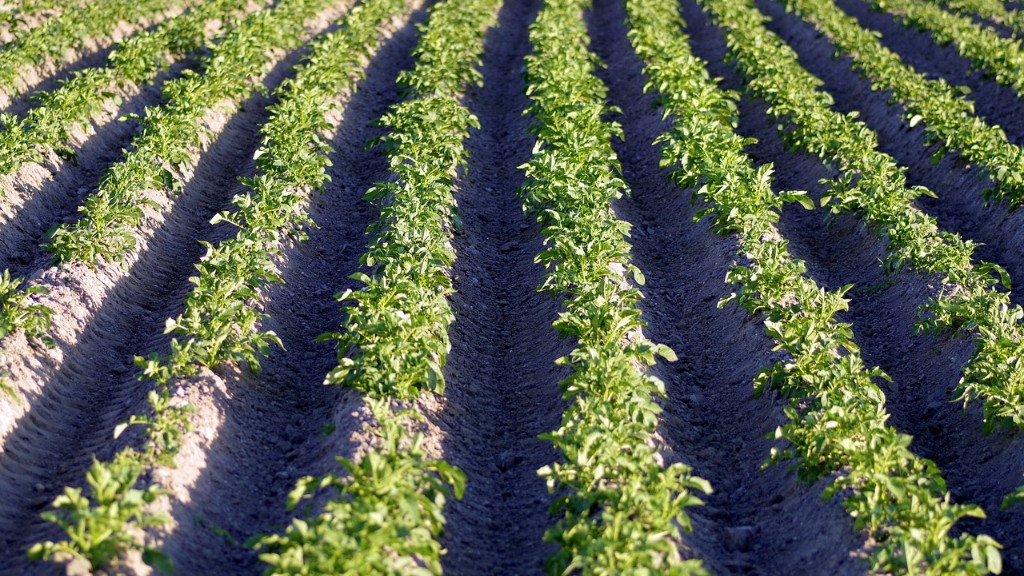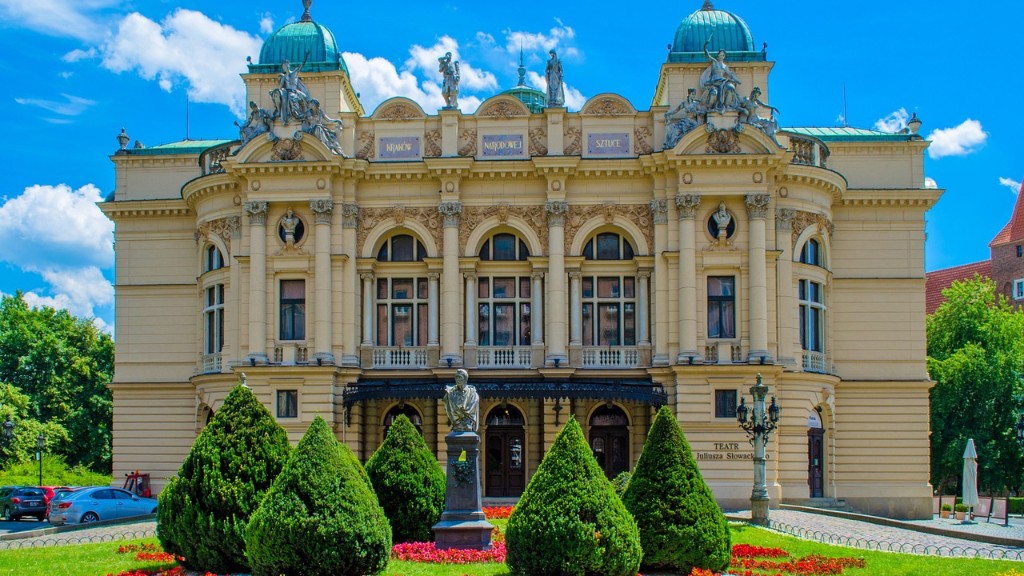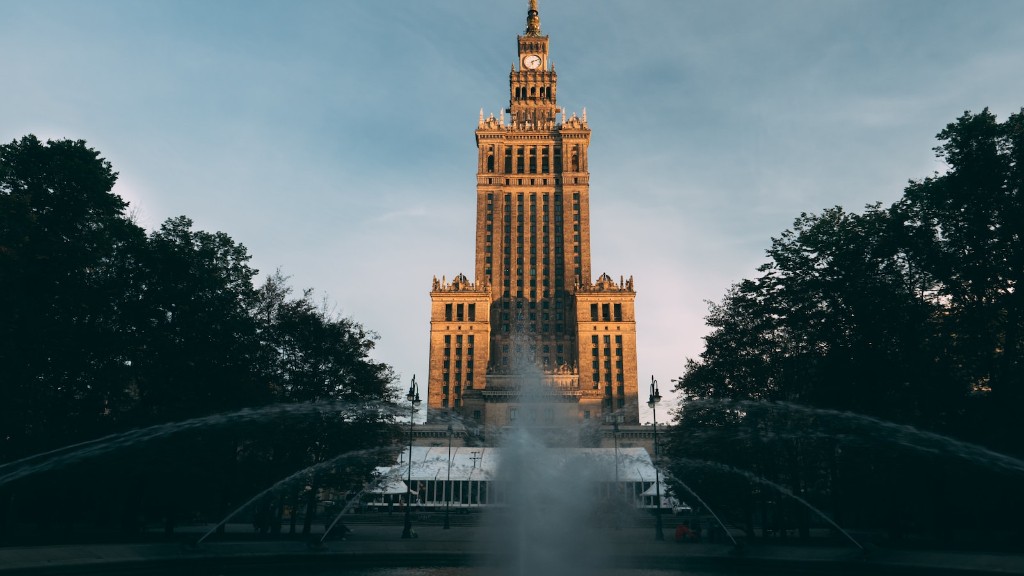What Is the Climate in Poland Now?
Poland has a relatively moderate climate, with temperatures dropping as low as -25°C (or -13°F) during the winter and rising to 30°C or (86°F) in the summer. Summers in Poland are quite warm, but only last between May and September depending on the region, while the winter can last longer. Rainfall throughout the year is quite frequent, with an average of anywhere from 700 to 1300mm (27-51in). Snow is common in winter, especially in the north and east of the country.
According to data collected by the World Meteorological Organization (WMO), the 10-year period from 2009-2018 saw the average temperature in Poland rise by 0.7°C. This average increase has been linked to the global phenomenon of climate change, which has caused the world’s average temperature to increase by 1.1°C. Rising temperatures have been linked to rising sea levels, as well as changes in temperature and air quality due to burning fossil fuels, agricultural activities, and other human interventions.
As a result, the extreme weather conditions in Poland have been increasingly unpredictable in recent years. During the winter, extreme cold waves can cause heavy snowfall and even blizzards, while in the summer, heat waves, droughts, and prolonged periods of rainfall have become more frequent. In addition, the rising levels of carbon dioxide have led to an increase in air pollution, and in some cases, air quality has become a major health risk.
Experts have warned that if the world continues to experience high levels of climate change, Poland will be particularly affected in the future. Due to the country’s flat terrain, extreme heat waves will be more intense and will last longer than in most other countries. In addition, the rising sea levels associated with global warming mean that Poland’s coastal regions will see more frequent and intense flooding and erosion.
In order to mitigate the effects of climate change in Poland, the government has taken measures such as investing in renewable energy sources, promoting green technology, and increasing public awareness about climate change. In addition, the Polish government has worked to reduce its emissions of greenhouse gases through a variety of initiatives, including the implementation of a carbon trading scheme and the introduction of a carbon tax.
Despite these efforts, the effects of climate change are already being felt in Poland and it is likely to worsen in the years to come. In order to protect the country from the effects of climate change, it is critical that citizens and the government continue to work together to reduce emissions and take action to mitigate the impacts of this global phenomenon.
Impact on Agriculture
Poland’s strategic location in central Europe makes it vulnerable to the impacts of climate change. The country’s temperate climate has historically enabled it to produce a wide variety of crops, but as temperatures rise, this could change significantly. As warming continues, many traditional crops such as wheat, rye, and apples may become less suitable for cultivation and new pest infestations could become more frequent. This could lead to decreased crop yields, which would have a significant economic impact.
In addition, rising temperatures will result in longer periods of drought, which will reduce the availability of water for irrigation purposes. This lack of water could also lead to a decline in crop production, and could potentially increase the chances of drought-related disasters. The lack of water could also cause soil erosion and will have a negative impact on the environment.
To address these issues, the government has taken a number of initiatives to reduce the impacts of climate change on agriculture. The government has implemented a variety of water conservation measures, such as increasing the efficiency of irrigation systems and introducing water reuse technologies.
The government is also investing in research on crop production and is working with farmers to ensure that they are able to adapt their practices to the changing climate. In addition, the government is encouraging farmers to incorporate sustainable farming techniques, such as using organic fertilisers and pesticides, which will help reduce emissions and increase crop yields.
Impact on Forests
Forests play an important role in Poland’s landscape and are home to many species of plants and animals. However, as the climate continues to warm, forests in the country are at risk of being affected. As temperatures rise, species that exist in colder climates may become less suitable for living in Poland, leading to a decline in their population numbers.
In addition, changes in the climate can result in an increase in the frequency and intensity of wildfires. This could further threaten forests and lead to a loss of biodiversity. Droughts can also cause trees to become more vulnerable to fires as they become dryer, while warmer temperatures can increase the evaporation of soil moisture, leading to soil erosion.
To mitigate the effects of climate change on forests in Poland, the government has implemented a number of measures. These include the implementation of a forest management plan to protect and restore habitats, the introduction of a forest fire prevention strategy, and the promotion of sustainable forestry practices.
In addition, the government is investing in research and development to find ways to adapt forests to the changing climate. This includes the development of drought-tolerant tree species, the enhancement of landscape connectivity to reduce the spread of pests, and the introduction of forest management techniques that reduce the risks of fires.
Impact on Biodiversity
Apart from the effects on forests, climate change is also likely to have a significant impact on biodiversity in Poland. Changes in temperature and weather can significantly disrupt the delicate balance of the natural world, and as a result, some species could become extinct. This could have a serious impact on the entire ecosystem, as different species depend on one another for survival.
In addition, climate change can cause the habitats of certain species to be destroyed, particularly in areas that are prone to flooding and rising sea levels. This could lead to a decrease in the number of certain species that can live in such areas, as they may not be able to adapt to the new conditions.
In order to reduce the impacts of climate change on biodiversity, the government is investing in conservation efforts. This includes restoring damaged habitats and conserving protected areas. In addition, the government is facilitating research into species that may be affected by climate change, in order to ensure that they are able to survive and thrive in the changing environment.
Impact on Urban Environments
Climate change is also likely to have a significant impact on urban environments in Poland. Rising temperatures may increase the frequency and intensity of heat waves, while increased rainfall can cause floods in urban areas. In addition, air pollution caused by burning fossil fuels can lead to respiratory illnesses and other health problems.
In order to mitigate the impacts of climate change on urban environments, the government has introduced a variety of initiatives. These include the development of green infrastructure to reduce the amount of heat islands in cities, the adoption of energy efficient building standards, and the promotion of public transport over private vehicles.
The government is also investing in research into the impacts of climate change on urban environments, in order to ensure that cities are better prepared for the future. This includes research into the most effective methods for cooling buildings and reducing air pollution, as well as the development of urban green spaces for people to enjoy in the warmer months.
Conclusion
Climate change is an increasingly pressing issue in Poland, as temperatures rise, extreme weather becomes more common, and biodiversity is affected. The government has taken a number of steps to mitigate the effects of climate change, but it is important for citizens to also take action in order to reduce emissions and help protect the country from the impacts of a changing climate.





